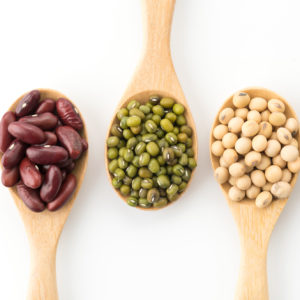Endometriosis Awareness Month


If you or your daughter have been experiencing abdominal pain, especially when combined with a cycle, contact a doctor to help diagnosis the issue. Don’t just live with the pain. There a treatment options available and a better quality of life ahead.
Beans Over Meat


The study, published by The BMJ, showed that replacing red meat with high-quality plant foods, like beans, nuts, or soy may be associated with a modestly reduced risk of coronary heart disease (CHD). The study also suggests that replacing total red meat consumption with whole grains and dairy products, and processed red meat with eggs, may also reduce this risk. Researchers based their findings on observing 43,272 U.S. men with an average age of 53.
Red meats to stay clear of include processed bacon, hot dogs, sausages, and salami, which are associated with an increased risk of death and major chronic diseases, according to the study.
Choosing plant-based options over red meat can help reduce the amount of saturated fats, cholesterol, and heme iron, which can keep the heart healthy. Plant-based options also increase the intake of unsaturated fat, fiber, antioxidants, polyphenols — all of which can benefit heart health by either increasing protective cholesterol, reducing bad cholesterol, or improving the function of the heart’s blood vessels. Pass the beans!
(healthline.com)
Stone Cold Struggle


Kidney stones typically develop when there is too much waste and not enough fluid in the kidneys which can be due to a number of factors, including:
- Not drinking enough water
- Not getting enough calcium
- A diet high in salt or sugar
- A lack of citrate, a substance that help prevent stones from forming
- Family history and genetics
- Eating large amounts oxalate-rich foods (such as nuts, spinach, chocolate, and certain teas)
- Drinking colas, which contain phosphate and have a high sugar content
- Consuming too much animal protein
A kidney stone often goes unnoticed until it starts to pass into your ureters. Once this happens, symptoms typically appear without warning. You’ll likely feel sharp, stabbing pain at the bottom of your ribcage, though the pain can shift into the genital area as well. The pain from kidney stones often comes in waves, and you may feel better for a few hours before the pain comes back.
Depending on the size of the stone, it can take up to six weeks to pass (though many patients opt for interventions within that time frame). Small stones may take only a few days to a week to pass. Your doctor will likely prescribe medications to help you manage the pain during this time. Anti-inflammatory medications can help reduce pain while passing a kidney stones as well.
(everydayhealth.com)






